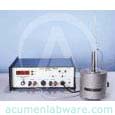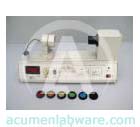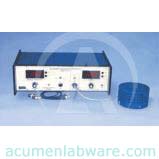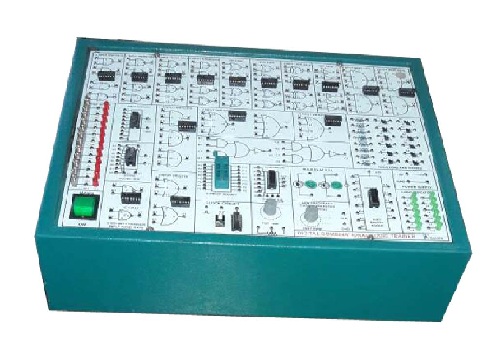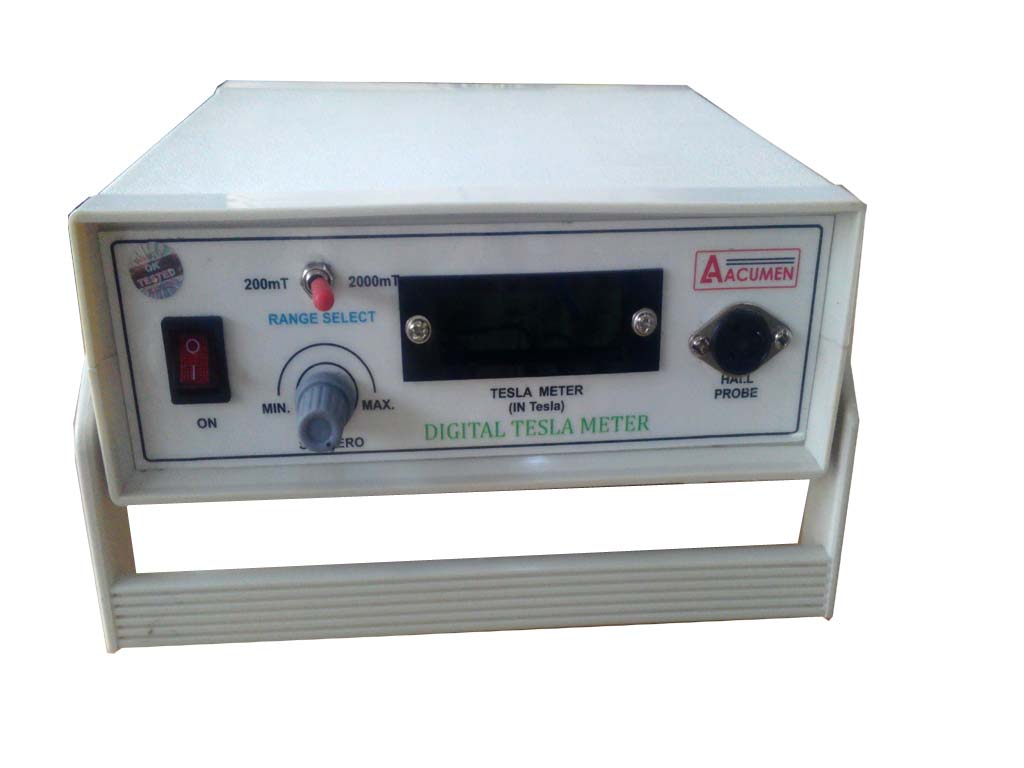Resistivity of Semiconductor by Four Probe Method at different temperatures and determination of the Band-gap:
The Four Probe Method is one of the standard and most widely used method for the measurement of resistivity of semiconductors. The experimental arrangement is illustrated. In its useful form, the four probes are collinear. The error due to contact resistance, which is specially serious in the electrical measurement on semiconductors, is avoided by the use of two extra contacts (probes) between the current contacts. In this arrangement the contact resistance may all be high compare to the sample resistance, but as long as the resistance of the sample and contact resistances are small compared with the effective resistance of the voltage measuring device (potentiometer, electrometer or electronic voltmeter), the measured value will remain unaffected. Because of pressure contacts,
the arrangement is also specially useful for quick measurement on different samples or sampling different parts of the same sample.
